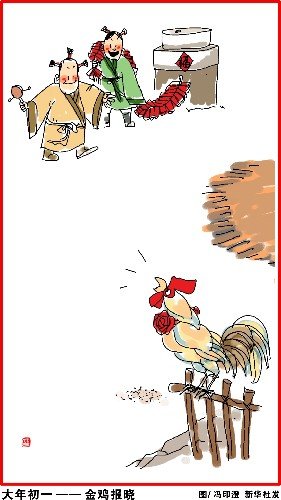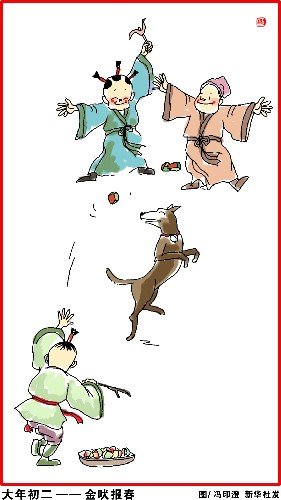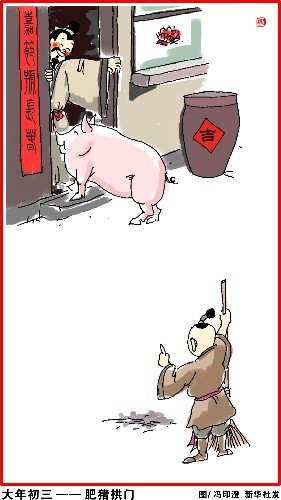
Chinese people are supposed to stay up the whole night on the 30th day of the 12th month in the Lunar Calendar
In Chinese mythology, a monster called nian would come out to harm people on New Year's Eve, so people get together, staying up and chatting, hoping for a peaceful passage of time. The custom of staying up (Chinese: shou tai sui) symbolizes the warding off of all diseases and disasters and wishing good luck in the New Year.
Chinese people attach great importance to the Spring Festival Eve, when all family members eat dinner together.

The first day of Chinese New Year, also known as the "day of chicken", officially begins at midnight.
It is traditional to light firecrackers and make as much of a din as possible to chase off the evil monster nian.
Most importantly the oldest and most senior members are visited with the visits strengthening family kinship.
Senior members of the family hand out red envelopes containing cash (Chinese: ya sui qian), a form of blessing and to suppress aging and the challenges of the coming year, to junior members of the family, mostly children and teenagers.

On the second day, married daughters usually go back to their own family to visit parents, relatives and close friends. Traditionally, married daughters didn't have the opportunity to visit their birth families frequently.
Some believe the second day is also the birthday of all dogs and remember them with special treats.

On the third day, an old saying goes: "A fat pig at the door", meaning the arrival of good luck and happiness.
Traditionally, the third day is known as "Chigou's Day". Chigou literally means "red dog", an epithet of "the God of Blazing Wrath", and it is considered an unlucky day to have guests or go visiting.
Folklore says the 3rd day is also "rat marriage day" (Chinese: lao shu qu qin), so people often go to bed earlier to give rats time for their wedding.


















































